John Rush and a group of workers would gather once a week to share their goals and encourage one another. One time a woman named Joan stood up, raised a children's book, and said, "My goal is to learn how to read this book."
John and his colleagues were stunned—they had no idea she couldn't read. But they soon learned why.
Joan shared that she was molested when she was just 3 years old. Her mom was a crack addict who had prostituted Joan and kept her in the closet. She only got out when it was time to "work." She was rescued by child services but was then sexually abused in two foster homes. Joan became an addict and finally ended up in recovery, where she got clean.
"How do you expect someone with that background to be able to read? You can't," John says, reflecting on that early moment in his career. "So much of who we are is shaped by the culture—the family dynamics, the community—that we have grown up in. There's certainly individual choice and responsibility, but it's never separated from the choices made within those contexts."
SECOND CHANCES AT WORK
For the last 15 years, John has been building companies that provide supportive employment for people like Joan. His latest venture is CleanTurn, which he now runs as the CEO. The company revitalizes commercial and residential spaces—and, in turn, its employees.
"Since we started in 2012, we've employed just under 800 individuals," John says, then adds that most of those individuals were previously incarcerated. Additionally, CleanTurn offers team members health and wellness groups, financial literacy classes, and professional development. The business even helps its employees pay down debts or furnish empty housing by allowing paycheck deductions until the amount is paid back.
The impact? "CleanTurn has generated about $25 million in economic value in Ohio without depending on taxpayer or philanthropic dollars," John says.
This thriving Columbus, Ohio-based organization hires people with a past and equips them to thrive in the workplace—both of which are uncommon, as some CleanTurn employees know all too well.
'CleanTurn has generated about $25 million in economic value in Ohio without depending on taxpayer or philanthropic dollars.'
CHANGING PERCEPTIONS
Thirty-one-year-old Tara has dark brown hair and a playful smile. She has climbed the ladder to become a quality control supervisor at CleanTurn. Before that, she served eight years and three months of an 11-year prison sentence. She realized that many of the women who she saw released would soon return. "It just hit me," she says, "and I was like, 'I don't want to be that person.'" She started by earning her GED, then enrolled in college courses. She became a certified basic obedience dog trainer. "I worked and worked and worked and worked," Tara says.
After her release, she was under house arrest for 30 days. She was hired at CleanTurn the following month. But even though she had been working to better herself and had found a job, she couldn't escape the social stigma of her record.
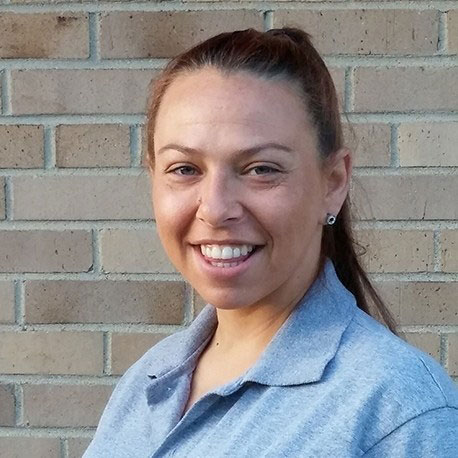
In the hot summer months, Tara and her coworkers wear shorts to stay cool. But that used to leave Tara's ankle monitor exposed—something one client didn't approve of.
"There was a client that called and was like, 'I do not want her here. Why does she have this monitor on?'" remembers Tara. "People's perception is that we're not [to be] trusted because we have this background, or we may be violent," she says.
CleanTurn is working hard to change those perceptions and shatter the myth that a person's past dictates their future. But John's team repeatedly faces the same question: Why?
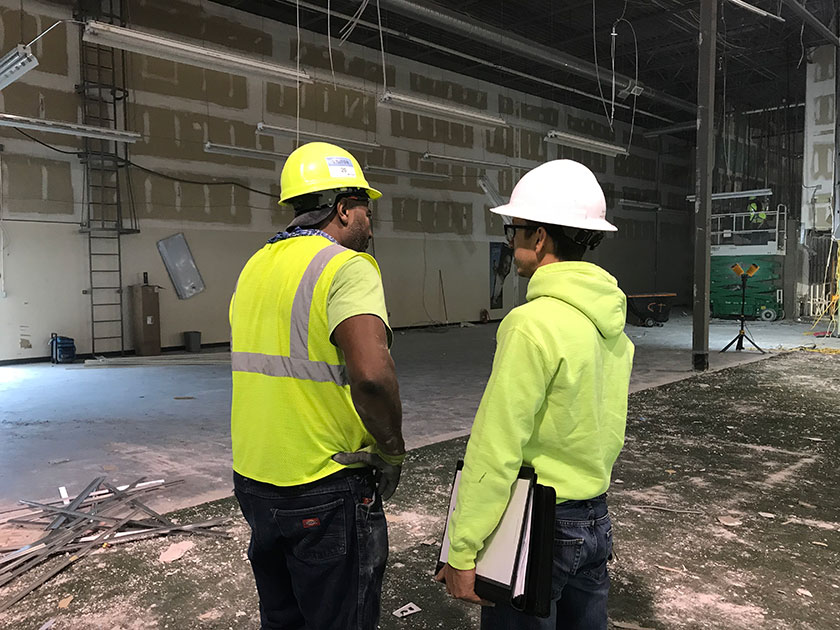
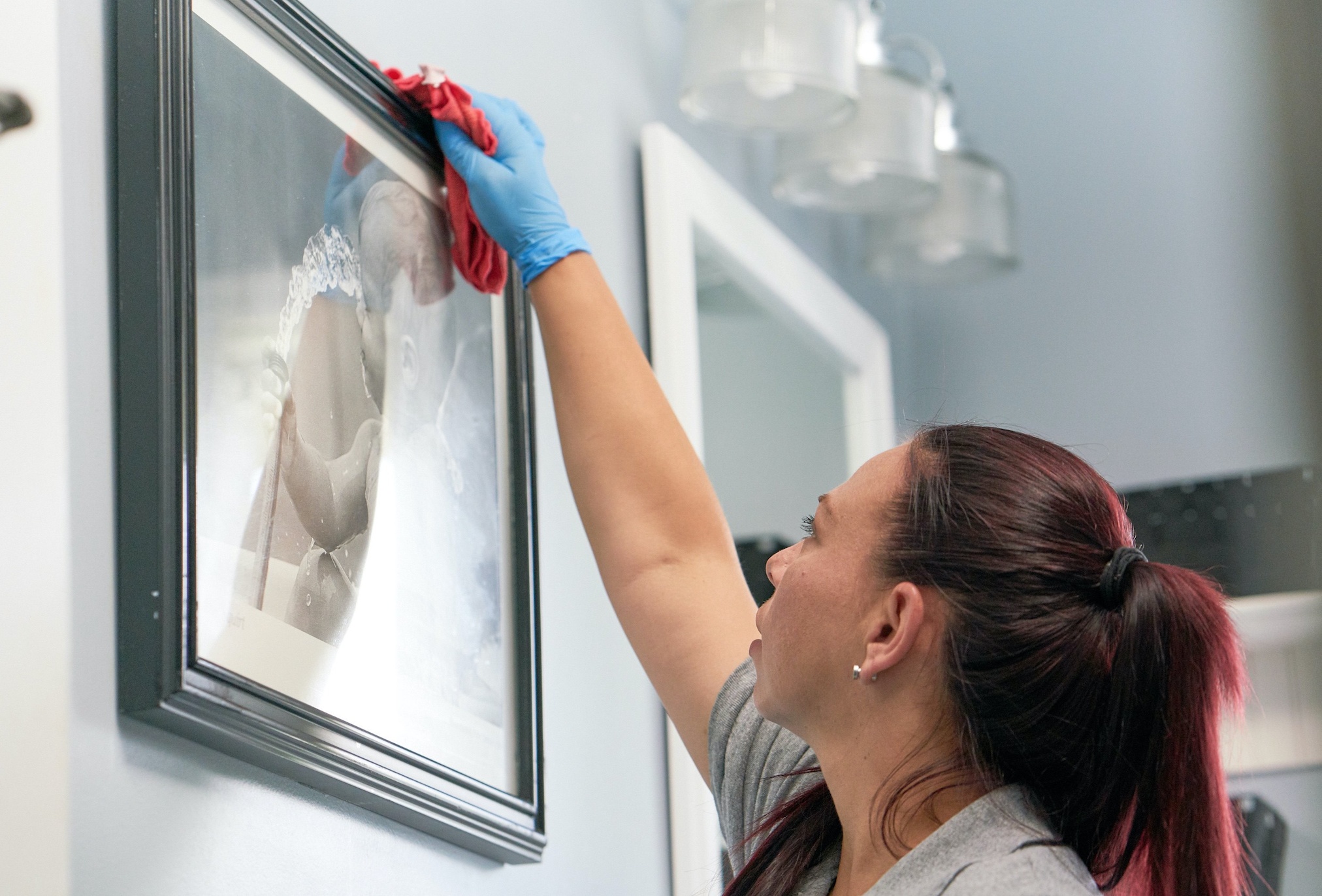
'An individual that has spent time incarcerated is just as much a human being as someone who hasn't.'
WHY EXTEND SECOND CHANCES?
Why should organizations step out of their comfort zone and extend second chances to former prisoners? "Because they're human, they make mistakes. And as long as [they're] trying to strive and be a better person every single day, why would you close that door on somebody?" Tara asks.
"An individual that has spent time incarcerated is just as much a human being as someone who hasn't," adds John. Most Americans agree. According to recent research, three-quarters of Americans feel comfortable if the businesses they patronize are known to give former prisoners a second chance by giving them a job. The same number (76%) of Americans are comfortable working for an employer known to give second chances.
While human dignity is the foundational reason for extending second chances, John says employers should also consider work ethic. "The past will certainly inform the present, but it shouldn't dictate the person's future. Often, individuals returning from incarceration have an extra desire to remain motivated and be part of a bigger mission to change people's perceptions," he says.
That certainly seems true of Frank, CleanTurn's calm and cool facilities manager, who is also one of the approximately 70 million American adults with a criminal record. Before his incarceration, Frank worked hard to find his place in society. "Incarceration didn't change my perspective of what I'm supposed to be doing in life," he says. "All it did was interrupt it. Afterwards, I still wanted to be productive." Closing the door on employment for people like Frank who have a criminal record costs the U.S. economy between $78 billion to $87 billion in projected economic output.
But since being hired at CleanTurn three years ago, Frank moved from an entry-level position to being entrusted with maintaining the company’s facilities. Gaining meaningful employment is one of the most significant deterrents for involvement in future criminal activity, but 90 percent of those who have been incarcerated struggle to find employment in the first year after release. CleanTurn has found that when they extend one second chance, it multiplies second chances for others—replacing the cycle of crime with one of hope and renewal.
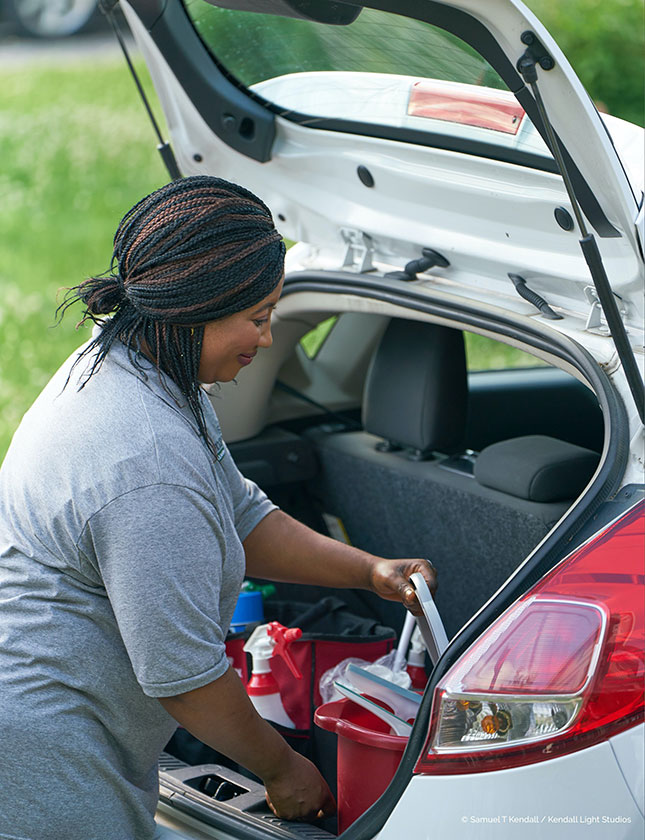
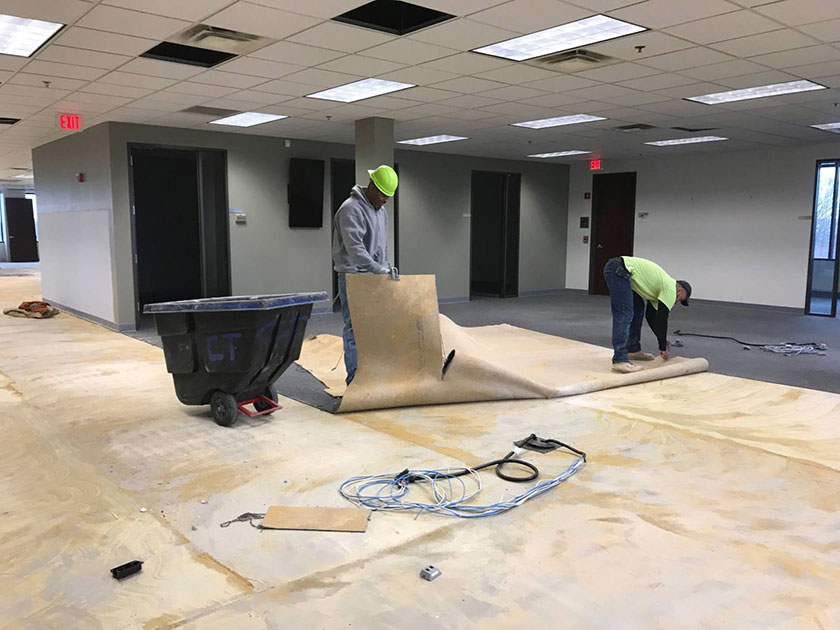
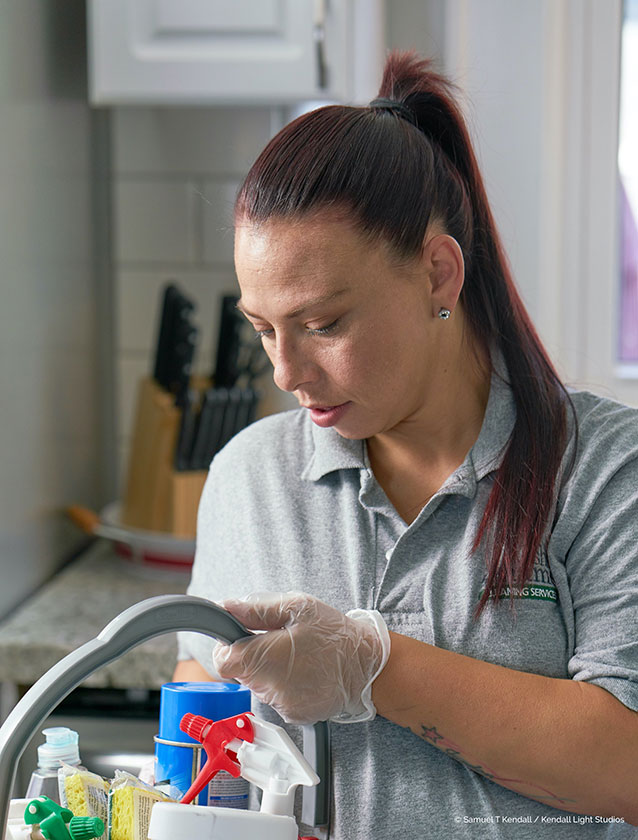
'THE BEST FEELING IN THE WORLD'
As uplifting as it is for Tara, Frank, and other formerly incarcerated people who are succeeding at work, nothing is as rewarding as passing on their success.
"Now the women that come in that go to the hiring process, I speak to them. I train them, I get to watch them. ... Oh, I almost got emotional for a second," Tara says. "I get to watch them grow; I get to watch them come from where I came from, and that is also super, super, super rewarding."
After pausing, Tara adds: "It's the greatest feeling ever if you see somebody that it's taken them living in a sober-living house for three years and working at our job for three years, and they finally get a car and their own place. Changing one life is the best feeling in the world. If employers would give that opportunity, who knows how many lives can be changed."
WE BELIEVE IN SECOND CHANCES
Second Chance Month recognizes the basic, God-given dignity and potential of returning citizens. When we create a culture of second chances, we support justice, reduce recidivism, and protect public safety.
You can be a part of restorative justice when you participate in Second Chance Month. Prison Fellowship has many ways for you to get involved on our website, including a calendar of local events and a social media toolkit to help spread the word about Second Chance Month.
Learn more about Second Chance Month. Together, we can break down barriers, create second-chance opportunities, and unlock brighter futures for approximately 1 in 3 American adults who have who have paid their debt to society.
DID YOU ENJOY THIS ARTICLE?
Make sure you don't miss out on any of our helpful articles and incredible transformation stories! Sign up to receive our weekly newsletter, and you'll get great content delivered directly to your inbox.
Your privacy is safe with us. We will never sell, trade, or share your personal information.
SUPPORT THE WORK OF PRISON FELLOWSHIP